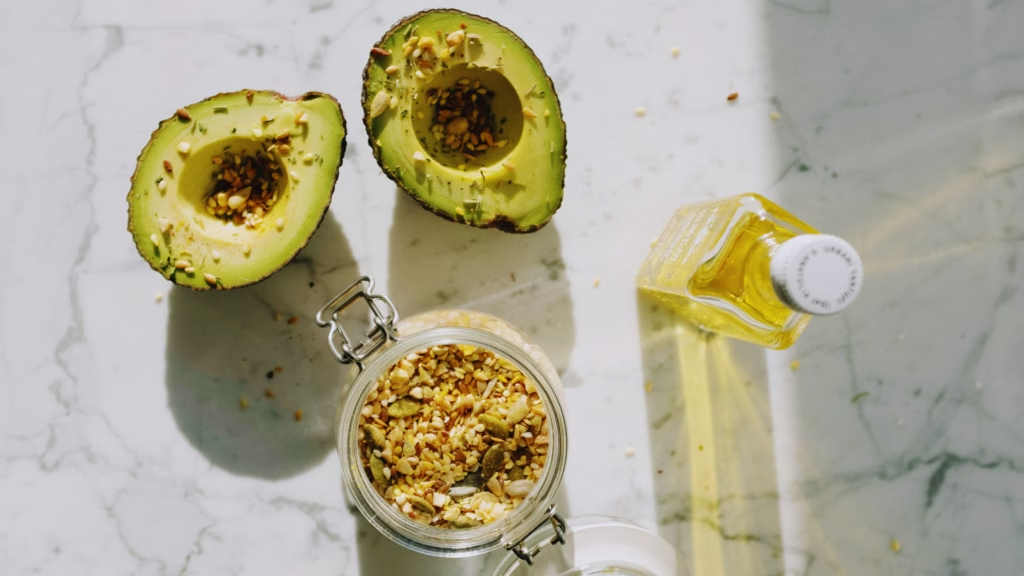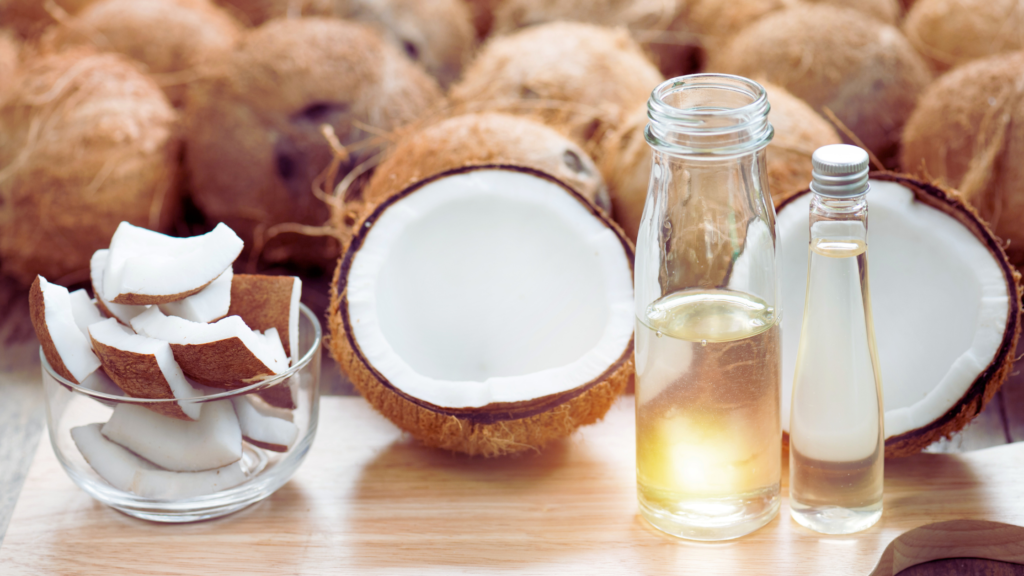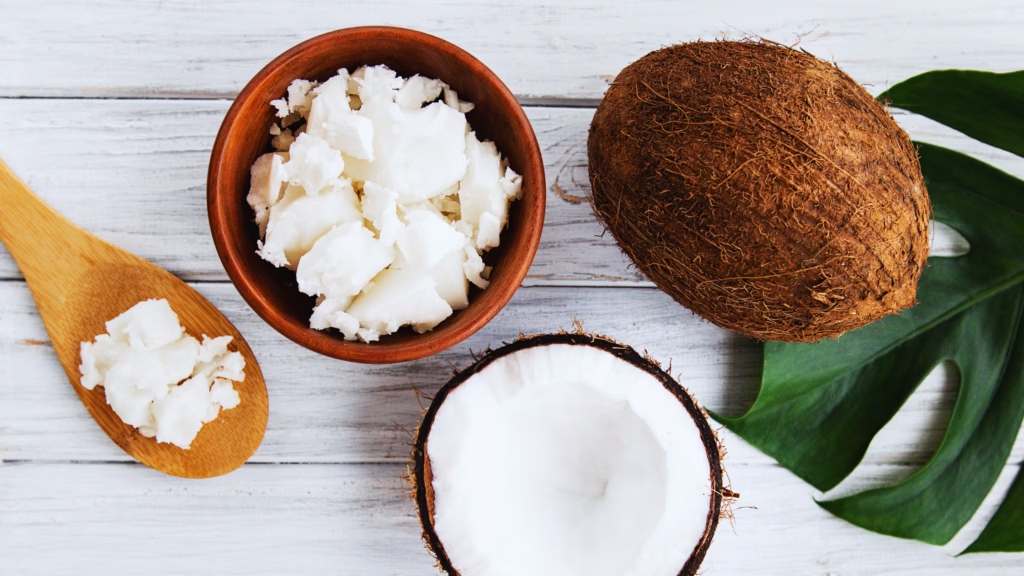In the world of cooking, the choice of oil can make a significant difference in both flavor and health. While many opt for conventional seed oils, concerns about their inflammatory properties have led to a growing interest in healthier alternatives like olive oil, avocado oil, and coconut oil. If you’re confused about what oil you should be using then stick around. In this guide, we’ll delve into the nuances of selecting healthy cooking oils, explore their benefits, and provide practical tips for incorporating them into your culinary repertoire and helping you understand which oil to use.

Understanding Cooking Oils:
1.Types of Cooking Oils:
Cooking oils can be broadly categorized into seed oils (e.g., soybean oil, corn oil), vegetable oils (e.g., canola oil, sunflower oil), and fruit oils (e.g., olive oil, avocado oil, coconut oil). Each type has its own unique flavor profile, smoke point, and nutritional composition.
2. The Importance of Smoke Point:
The smoke point of an oil refers to the temperature at which it begins to smoke and degrade. Cooking oils with higher smoke points are suitable for high-temperature cooking methods like frying and roasting, while those with lower smoke points are best reserved for gentle cooking techniques like sautéing and salad dressings. You don’t want to be using a low smoke point oil for high heat cooking.
Smoke points:
- Extra Virgin Olive Oil: Around 320°F to 375°F (160°C to 190°C)
- Virgin Olive Oil: Around 390°F (199°C)
- Regular Olive Oil: Around 410°F (210°C)
- Refined Avocado Oil: Around 520°F (271°C)
- Unrefined Coconut Oil: Around 350°F (177°C)
- Refined Coconut Oil: Around 400°F (204°C)

Why it’s essential to make sure you’re using the right oil for the right cooking methods:
Even though an oil is considered healthy, that does not necessarily mean it’s the healthy choice for grilling or cooking at high temperatures. Here’s why it is so important to understand the difference. When oil exceeds its smoke point and starts to degrade, it releases harmful substances that can affect your health if ingested. Additionally, the breakdown of oil produces compounds called free radicals, which can damage cells in your body and increase the risk of diseases like heart disease and cancer over time.
Healthy Cooking Oils:
1.Benefits of Olive Oil, Avocado Oil, and Coconut Oil:
–Olive oil:
Rich in monounsaturated fats, which are associated with heart health and inflammation reduction. We recommend always purchasing Extra Virgin Olive Oil and making sure it is in a glass container or tin and that it is not in a clear bottle thus ensuring it maintains it’s quality.
Product Recommendation and Amazon Favorite:
Avocado oil:
Has similar benefits to Olive oil and also contains antioxidants like vitamin E. We recommend purchasing your avocado oil in a dark, glass container.
Product Recommendation and Amazon Favorite:
Coconut oil:
Unique for its high content of medium-chain triglycerides (MCTs), which can boost metabolism and provide quick energy.
Product Recommendation and Amazon Favorite:

2. Nutritional Value:
Numerous studies have demonstrated the nutritional superiority of olive oil, avocado oil, and coconut oil compared to seed oils. These healthier alternatives are less processed and contain fewer inflammatory omega-6 fatty acids, making them ideal choices for cooking and overall wellness.

Using Oils in Cooking:
1. Suitability for Cooking Methods:
–Olive Oil and Coconut Oil:
Best suited for low to medium heat cooking methods such as sautéing, baking, and drizzling over dishes for added flavor.
–Avocado Oil:
Ideal for high-heat cooking techniques like frying and roasting, thanks to its high smoke point and stable composition.
2. Versatility and Flavor Enhancement:
Olive oil is renowned for its versatility and ability to enhance the flavor of dishes. Drizzle it over salads, pasta, or grilled vegetables for a burst of flavor and richness. Avocado oil’s mild taste makes it a perfect base for homemade salad dressings and marinades, while coconut oil adds a subtle tropical flavor to both sweet and savory recipes.

Avoiding Inflammatory Seed Oils:
1. Concerns about Seed Oils:
Seed oils like soybean oil, corn oil, and sunflower oil are prevalent in processed foods and cooking oils due to their low cost and high availability. However, they are often highly refined and contain elevated levels of omega-6 fatty acids, which can promote inflammation when consumed in excess.
2. Impact on Health:
Excessive consumption of omega-6 fatty acids has been linked to various health issues, including inflammation, heart disease, and obesity. By reducing your intake of seed oils and opting for healthier alternatives like olive oil, avocado oil, and coconut oil, you can support your overall health and well-being.

Choosing the right healthy cooking oils is a simple yet impactful way to enhance the flavor and nutritional value of your meals while promoting optimal health. Prioritizing healthier options like olive oil, avocado oil, and coconut oil, will positively impact your health from the inside out. It’s something that seems so small but will significantly impact your health.
Moral of the story: STAY AWAY FROM VEGETABLE AND SEED OILS. USE COCONUT AND AVOCADO OIL FOR HIGH TEMPERATURE COOKING AND OLIVE OIL FOR SALAD DRESSINGS AND DRIZZLING.
More info on better food choices: Best Anti-Inflammatory Foods to Transform Your Health
Cheers to a healthier you! x



